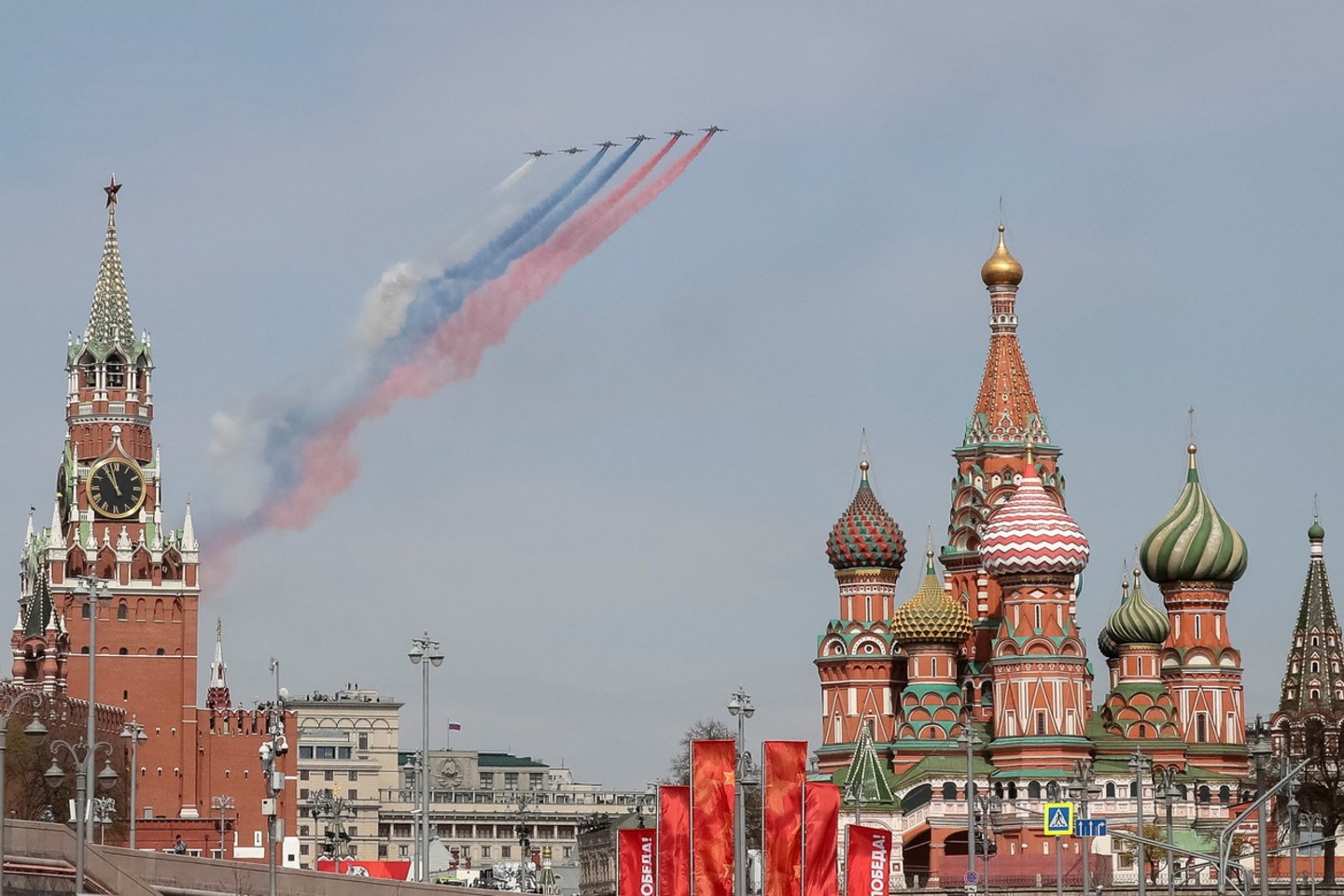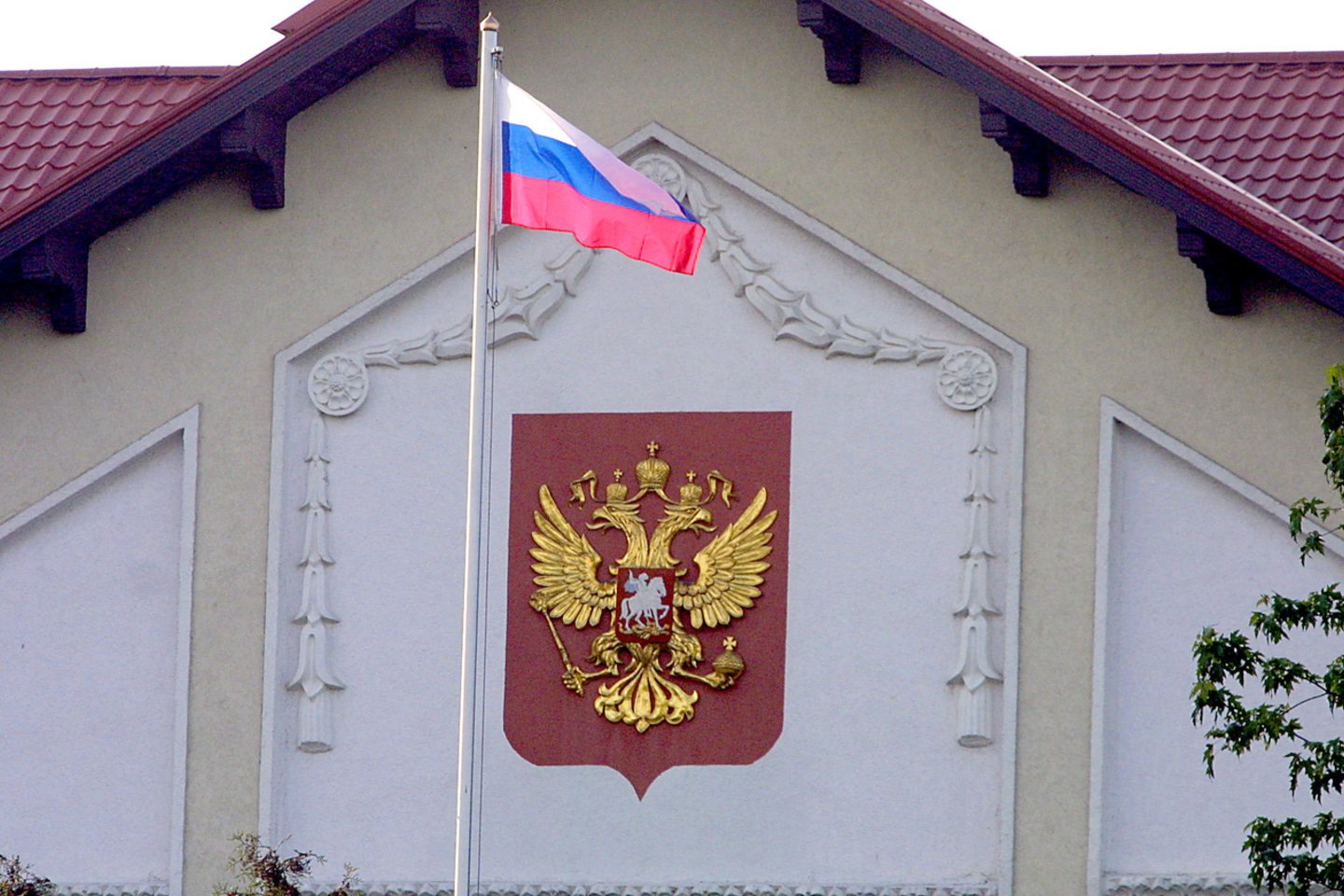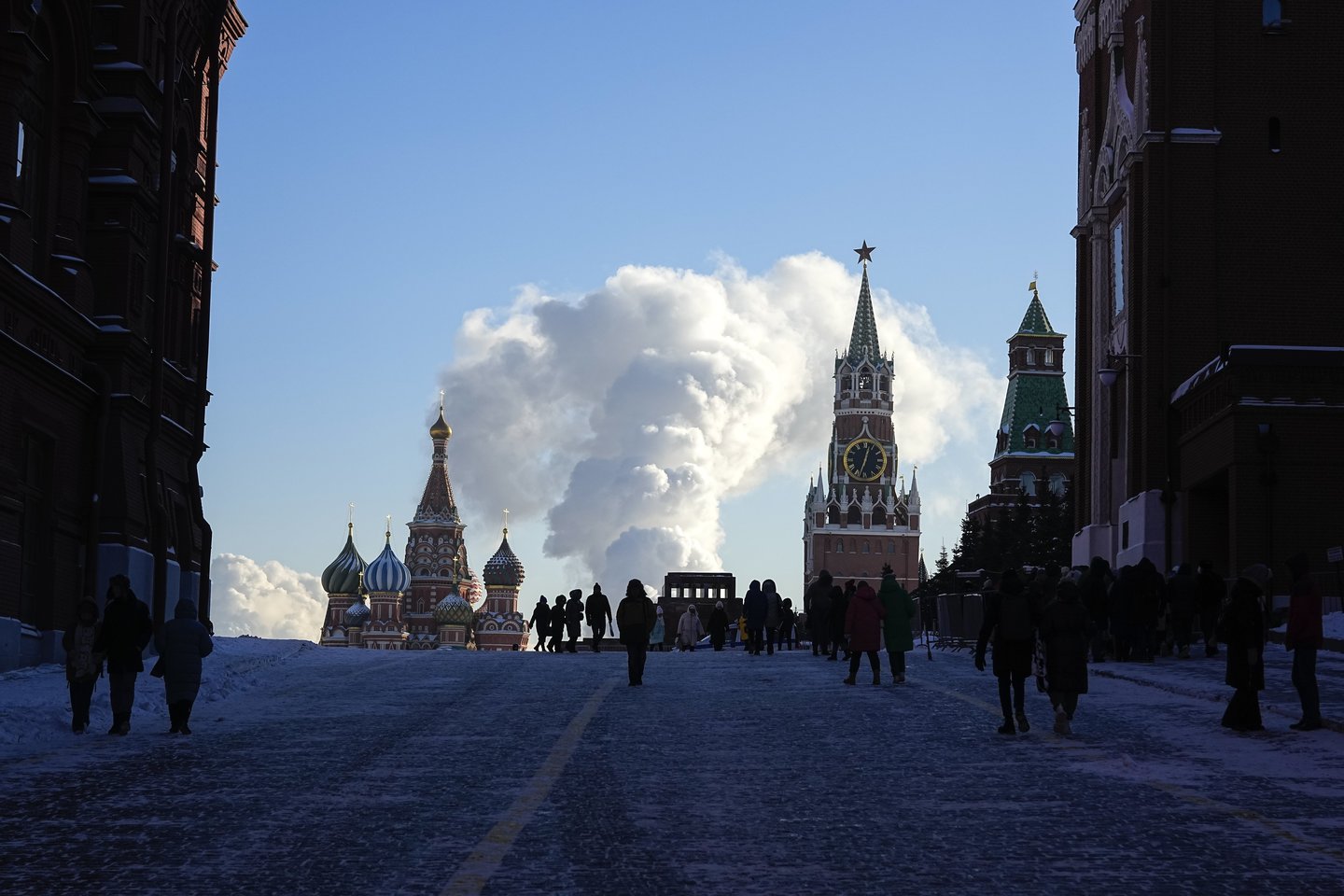What is the purpose of such acts? Is there a Russian connection to the protests by farmers in Poland, who also waved the USSR flag? Is enough being done in our country to make society resistant to recruitment?
Aiming to cause panic
Viktor Denisenko, an expert on information warfare and propaganda, argues that Russia's actions in the Baltic States are aimed at destabilising the situation, sowing anxiety and tension. One of the aims, he says, maybe to divide society.
„Russia is indeed carrying out such operations. We can recall the rather old events of the 2007 Bronze Soldier's Monument relocation. Back then, tensions were raised, and Estonian society was destabilised by using less direct actions, but still propaganda and cyber means.
Russia is trying to sow destabilisation, anxiety and insecurity,“ Denisenko said in the programme Topical Interview on Žinių Radijas.
Arvydas Anušauskas, Minister of National Defence, said that Russia should not be expected to leave its methods alone and wait for the end of the war with Ukraine.
„The incitement of neighbouring societies, the demonstration that the Russians and the institutions of neighbouring countries cannot repel hybrid attacks, has been and will continue to be constant.
I will remind you of recent stories. Nazi and Communist symbols painted on specific dates have always been there, and the monuments that are now being trashed are also a pursuit of a single goal. That goal is to stir up our society, to create distrust in the authorities, but in this case, the opposite happened to the people who vandalised the monuments – they were arrested,“ said the Minister.
Anušauskas also recalled the story of the orange triangles, when symbols similar to those seen just days before the start of the war in Ukraine were drawn on various buildings in Vilnius.
„We have a real sensitivity here. The police have already investigated and commented on the story. Of course, sensitivity is not always bad; it will help us notice other important things and what else can be applied by Putin's supporters, who are active from time to time,“ the Minister commented.
Baltic nationals are also being recruited
Denisenko stressed that Russia operates in different ways, but there are well-known operations of the occupying special services.
„Cases such as the attempted poisoning of Sergei Skripal and his daughter on the territory of the United Kingdom or the rather famous murders of Chechen exiles in Europe are no secret.
As far as the latest destabilisation is concerned, as I understand it, there have been arrests of people who have been bribed by Russia, who Russia has hired. Perhaps another ideological factor was at work here; as far as we know, these were people with dual citizenship, including Russian citizenship,“ said the propaganda expert.
Denisenko stressed that in the Baltic States, Russian special forces may look for people who can help them, and these people may agree to participate in one or another action for ideological or monetary reasons.
„As for other countries, there are different nuances, but I remember that less than a year ago, Ukrainian citizens were detained in Poland and recruited by the Russian special services. We cannot say this is an exclusive action, only for the Baltic States, because Russia could act this way in other European countries.
I do not have any data, and I do not want to make empty accusations, but there is a possibility that Russia could be behind the farmers' protests in Poland,“ the expert said.
Searching for potential puppets on social networks
Denisenko pointed out that Russian special and intelligence services have used social media to recruit people to act.
„It is a favourable medium for spreading ideas or establishing contacts. You can see a person's views by what they post on their account. Today, the world is global in one way or another, and the internet makes communication very easy, so social media is one possible channel – it would be tough to say otherwise,“ the expert reflected.
The propaganda expert welcomed the fact that a lot is being done in Lithuania to increase resistance to recruitment.
„We are constantly talking about Russian threats in the country and informing the population. If we look at the annual threat assessment report, the threat of recruitment by Russian and Belarusian special services is always mentioned.
There are also calls in Lithuania to avoid travelling to certain unfriendly countries. Belarus is probably the first country to be mentioned because it cooperates with Russia, and a person who crosses the border could be the object of recruitment by that country.
The information that there is a danger is not hidden from the public, and there are other actions that are not visible to the naked eye, which are carried out by the Lithuanian special services to ensure security,“ said Denisenko.



